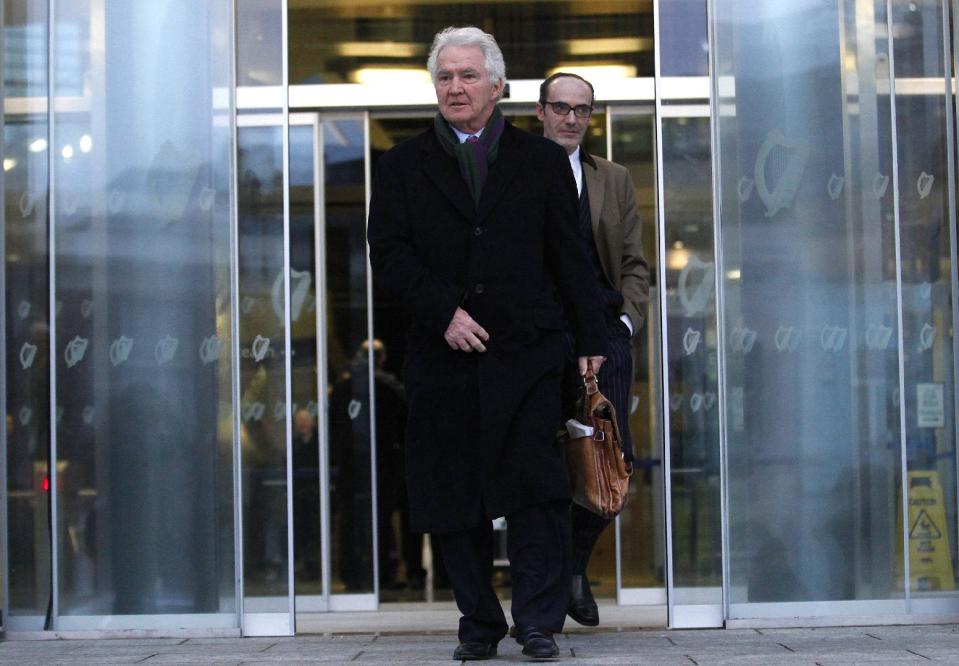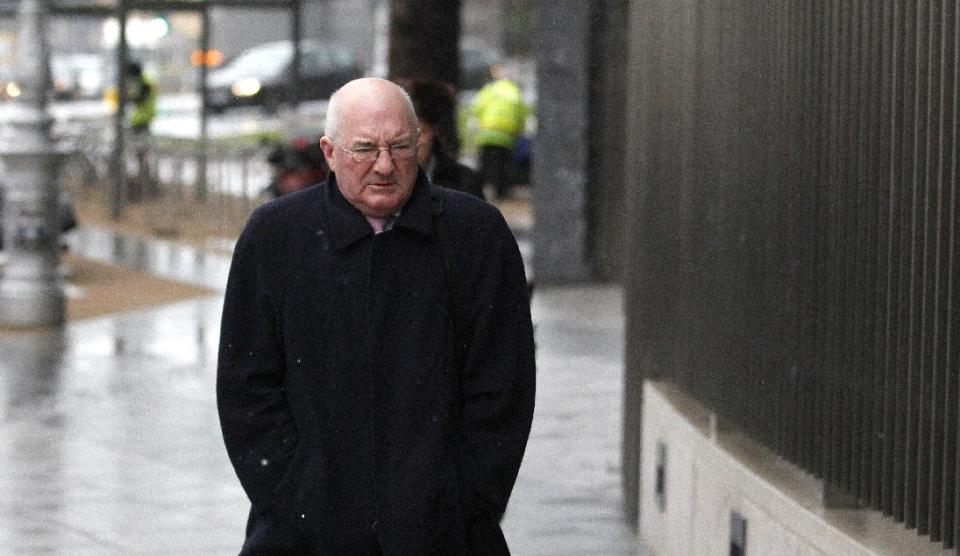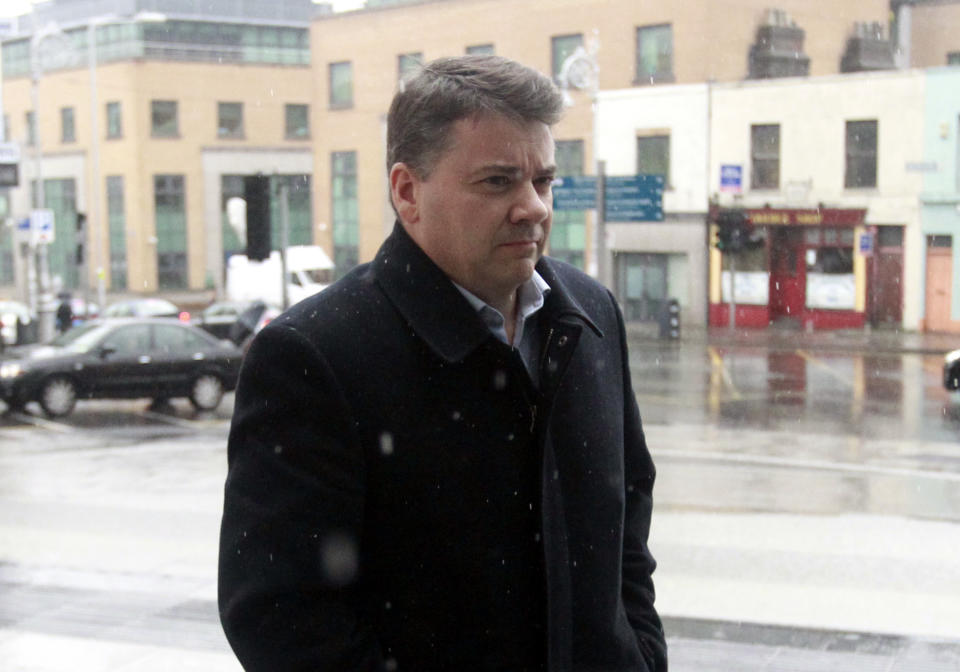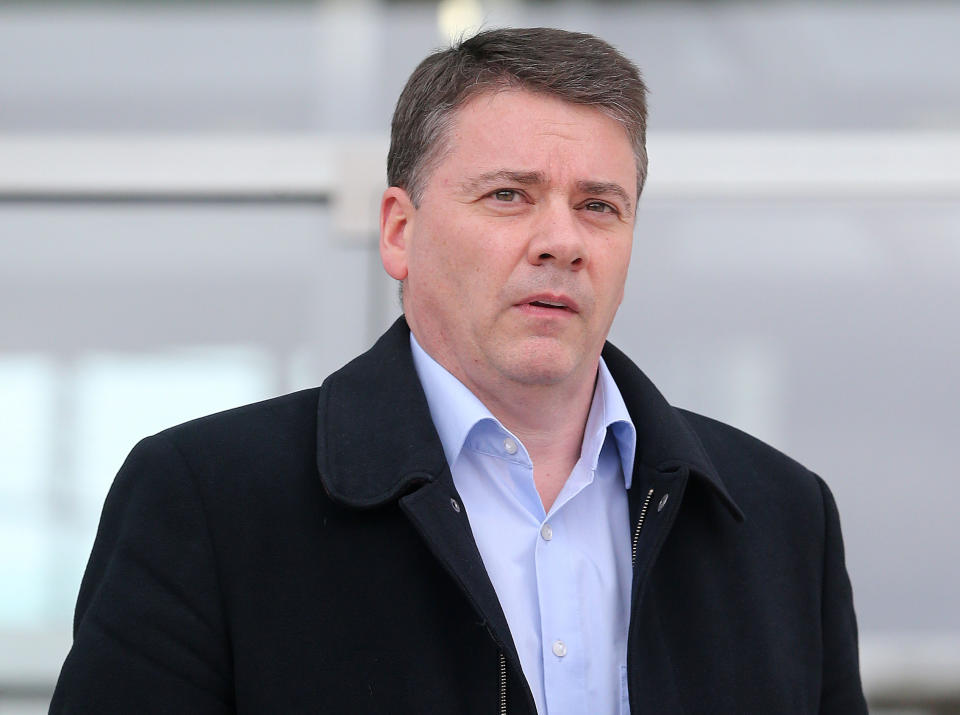Ex-Anglo Irish bankers have some charges dropped
DUBLIN (AP) — A judge has dismissed 13 fraud charges against two former executives of Anglo Irish Bank, the reckless lender that drove Ireland to the brink of national bankruptcy, as authorities continue to seek criminal convictions against directors of the ruined company.
To the visible surprise of the defendants, the judge overseeing the 10-week-old trial issued a partial acquittal order Wednesday after prosecutors finished their case against Sean FitzPatrick, Pat Whelan and Willie McAteer. The men's defense in Ireland's most complex financial criminal case begins next.
Dublin Circuit Criminal Court Judge Martin Nolan dismissed six of the 16 charges against former chairman FitzPatrick, seven of the 23 charges against former lending director Whelan, but none of the 16 facing McAteer, Anglo's former finance director. He told the 15-member jury he would explain his reasons later.
Together, the three men still face 42 charges of secretly lending more than 500 million euros ($700 million) to top clients for them to buy Anglo's sagging shares in 2008. It is one of several scandals involving hidden loans and losses that destroyed what had been, during Ireland's long Celtic Tiger boom, one of Europe's most dynamic and aggressive banks with worldwide property investments.
Anglo's imminent collapse in 2008 forced Ireland to rescue it and the country's five other native banks. The snowballing cost of that effort — the taxpayer bill topped 63 billion euros ($80 billion), a third the size of Ireland's gross domestic product — overwhelmed the ability of Ireland to finance itself and culminated in a 2010 international bailout. Ireland successfully exited dependence on subsidized loans from European partners and the International Monetary Fund last year.
While Anglo itself no longer exists, with its toxic loan book and property portfolio transferred to other state-owned banks, the five-year investigation into how the bank went so spectacularly wrong is expected to run for many years more.
The current trial involves Anglo's mid-2008 scheme to bolster its sagging stock price by loaning its own money to top clients on condition they used all the funds to buy Anglo stock held by the bank's biggest shareholder, billionaire entrepreneur Sean Quinn.
The 16 investors, branded the "golden circle" in Irish media, included Quinn's wife and five children. The bank's aim was to dilute Quinn's personal stake down from nearly 30 percent without disclosing this market-sensitive information.
Quinn had built his massive holding using a financial derivative that shielded his ownership from public disclosure; required him to pay only a fraction of the stock's face value; and exposed him to catastrophic losses if that value slumped. Quinn gambled that Anglo, the top financier to Ireland's decade-long property boom, was due a rebound.
Instead, Anglo shares kept plummeting amid the global credit crisis. They became worthless in early 2009 when Ireland nationalized the bank after discovering a string of accounting frauds. Charges are expected to be filed on these once the current trial concludes.
Separately, government lawyers representing the remnants of Anglo are suing Quinn for repayment of more than 3 billion euros in loans, but Quinn — once Ireland's wealthiest man with interests in everything from cement to bottle-making — has declared bankruptcy and his family has been accused of illegally transferring assets abroad.
The seven charges dropped against Whelan involved fraudulent letters sent to seven "golden circle" investors in October 2008, after the bank's fragile position was exposed, claiming to represent the original July 2008 loan terms. The back-dated letters, bearing Whelan's name and apparent signature, advised the investors they were not legally obliged to repay any of their loans.
The six charges dropped against FitzPatrick involve the original loans offered to Quinn's wife and five children. He remains charged with fraud in connection with the loans provided to the other 10 "golden circle" investors.
Whelan and McAteer both remain charged with 16 counts of fraud for the full range of secret loans to the Anglo investors. Irish authorities want to question former chief executive David Drumm, who after Anglo's failure fled to the United States and is seeking bankruptcy protection in New York.





